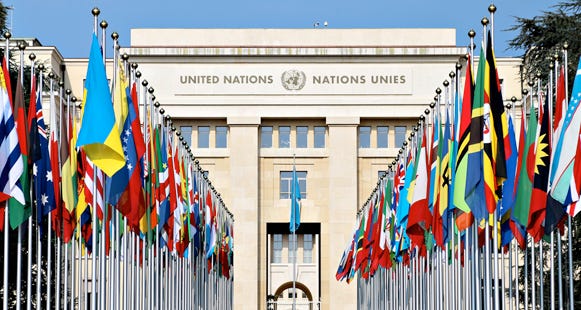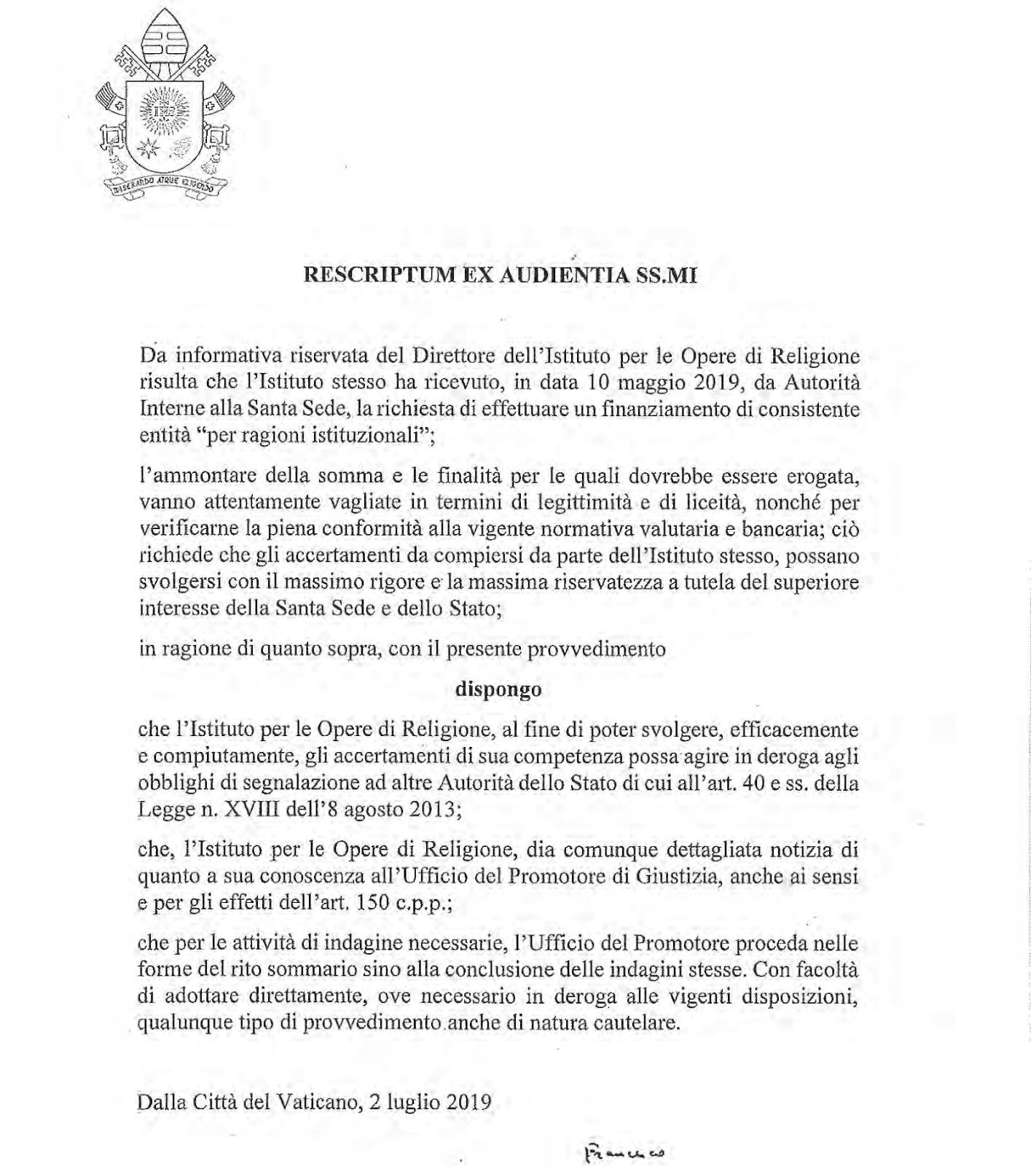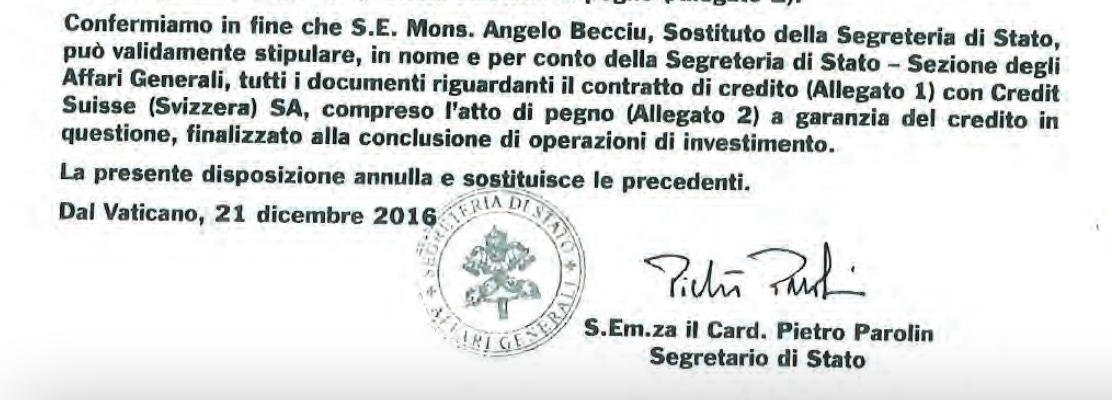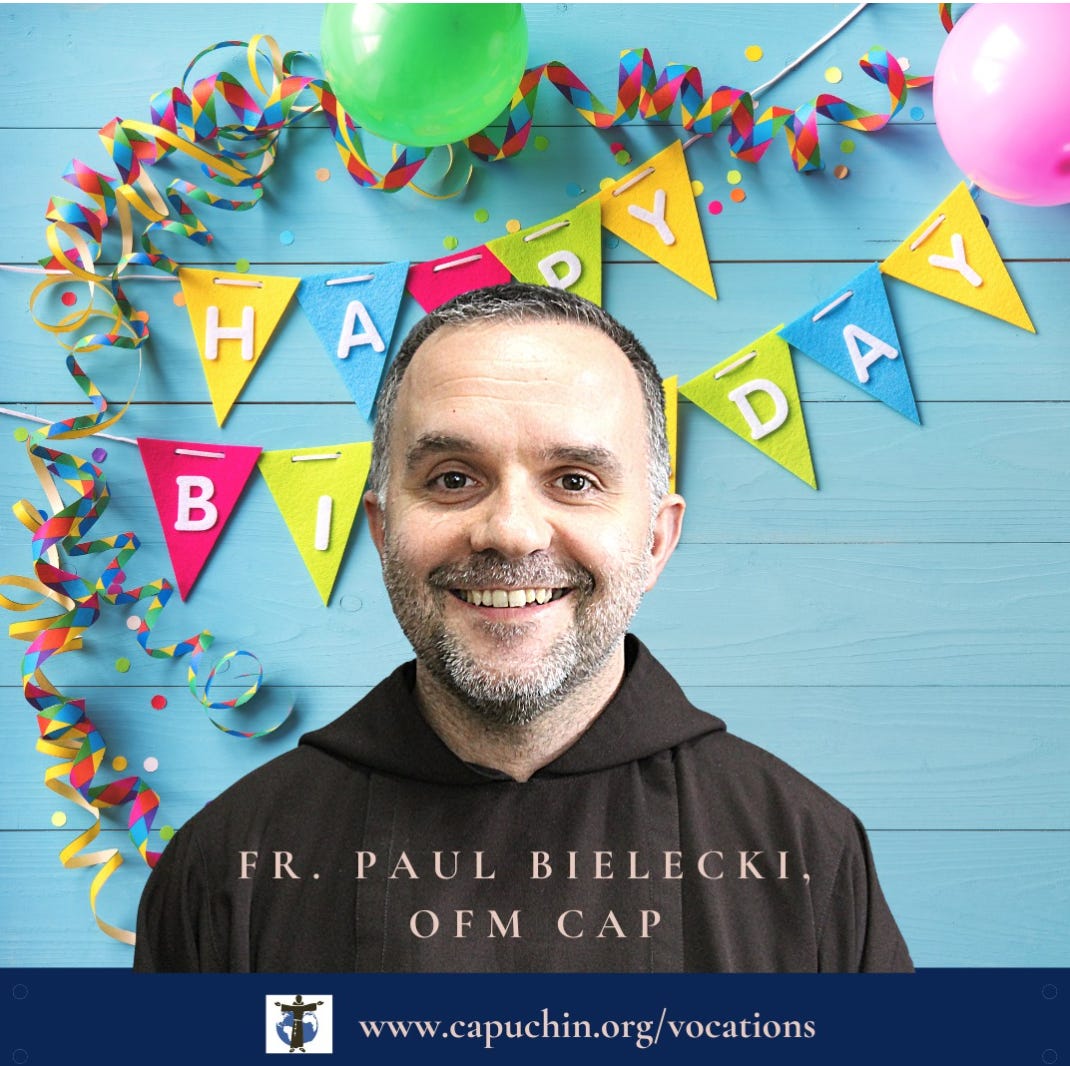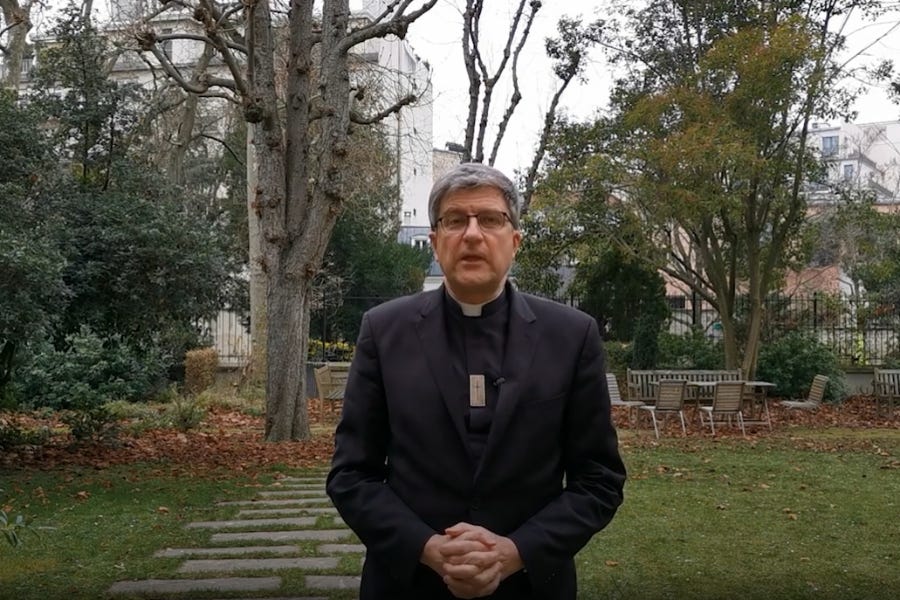The investment manager at the center of the Vatican’s London property scandal and trial has filed a formal complaint at the United Nations, alleging his rights have been denied in his ongoing Vatican legal process.
Raffaele Mincione, who acted as investment manager for the Vatican Secretariat of State from 2014-2018, and who ultimately sold them the London property at 60 Sloane Ave., filed a complaint with the office of the Special Rapporteur on independence of judges and lawyers at the United Nations on June 14.
The report outlines several complaints about alleged violations of due process in the more than three years-long investigation and trial.
While some of the complaint’s claims have already been presented by Minionce and his legal team in Vatican court and in media interviews, Mincione’s lawyer also raises concerns of harassment against defense attorneys by Vatican prosecutors and makes a key complaint about the Vatican judges’ withholding the text of their full judicial sentence ahead of appeal hearings scheduled to begin next month.
—
Mincione was one of ten defendants tried and nine convicted of financial crimes in the fallout of those business dealings. In December last year, Mincione was sentenced to five and a half years in prison by the city state’s court of first instance. He was also subject to asset seizures of millions of euros as party to a group liability of 200 million euros among all the convicted defendants.
The Anglo-Italian businessman, who lives and works in London, has maintained his innocence throughout the process and, in an interview with The Pillar last year, said he was being made a scapegoat for an internal Vatican corruption scandal in which he played no part.
In the complaint, submitted on Mincione’s behalf by the senior UK barrister Rodney Dixon KC, the independence of the Vatican City judicial system is criticized, as is the freedom of defense lawyers to have access to and present all possible exculpatory evidence.
Dixon has previously filed legal briefs and arguments on Mincione’s behalf, arguing that the Vatican court is directly subject to the pope, as supreme head of the Vatican City’s governance, and that the court rejected several attempts by the businessman to cite witnesses whom he has said would demonstrate his innocence.
Also included in the complaint to the Special Rapporteur’s office is a rehearsal of previous legal criticisms of the search warrants authorized by Pope Francis in 2019, opening the investigation which led to the subsequent financial crimes trial.
While several lawyers for the defense, as well as media supporters of the case’s star defendant Cardinal Angelo Becciu, have insisted that the rescripts constituted a violation of due process and amounted to Pope Francis “changing the law four times,” this is not technically correct.
—
Dixon also notes in the filing that “It appears that Mr Mincione’s lawyers were the victims of interference, if not intimidation, and it may be that this was at the instigation of the Office of the Promoter of Justice or another organ of the Holy See.”
The claim of “interference, if not intimidation” relates to the attempted arrest of Mincione by Vatican prosecutors in June of 2020.
In that year, investigators arranged for Mincione to attend a June 19 meeting in order for him to make a statement. As Mincione has previously told The Pillar, he declined to attend that meeting at the last minute, after being tipped off that a warrant had been issued for his arrest and the meeting was, in effect, a trap.
Mincione sent his legal team to the meeting to make a statement on his behalf, but they reported being followed back to their offices by two men on a motorbike who subsequently followed one of the lawyers back to his residence as well.
Sources close to the trial have previously told The Pillar that Mincione’s team believe his lawyers were tailed by Vatican investigators following the June meeting in a bid to track Minione and serve the arrest warrant on Italian territory and Mincione’s lawyers filed a police report in Rome outlining their encounter, The Pillar has confirmed.
The warrant was subsequently canceled by the Vatican City tribunal in July of 2020 in an order previously obtained by The Pillar which stated that “the conditions legitimizing the arrest warrant do not exist.”
—
Apart from representing to the UN previous allegations of harassment and lack of due process, though, Mincione’s report to the Special Rapporteur makes a new and timely complaint about the Vatican court’s conduct since his conviction.
Despite the slate of decisions in the case being announced in December last year, the tribunal has still, more than six months later, not released the full judicial reasoning for the convictions. Instead, a lengthy communique was issued through the Holy See press office announcing the charges on which various defendants had been found guilty and the sentences imposed.
Without access to the judges’ legal reasoning, Mincione’s UN complaint states, it is effectively impossible to mount a coherent argument — hearings for which are set to begin next month and conclude by the court’s August recess.
As part of the appeal process, lawyers for Mincione are required to specify the grounds on which his conviction is flawed but, they argue, the Vatican judges have thus far refused to publish the rationale for his conviction in the first place.
Sources close to Mincione’s legal team in Rome have told The Pillar that they are expecting the full decision to be released in the coming weeks, but timed to prevent them having adequate opportunity to draft full responses before the appeal hearings begin.
—
Of the nine individuals convicted at the conclusion of the trial in December, Mincione has long struck many court watchers as having presented the strongest case in his own defense.
The investment manager who created the Athena Global Opportunities Fund to invest some $200 million for the Secretariat of State in 2014, and who eventually sold them the London building, has offered a full and fluent account of his Vatican dealings — in court and in the press.
He has also been able to provide copious amounts of legal documentation and official correspondence to back up his assertions that he did not violate the terms of contracts he signed when agreeing to manage the Secretariat of State’s money.
While Mincione was accused of a series of financial crimes by Vatican prosecutors, including embezzlement, fraud, abuse of office, and self-laundering, he was acquitted on nearly all of the charges.
Instead, he was convicted of securing from the Secretariat of State for “unlawful use” the 200 million euros which he invested on behalf of the secretariat, which the court called embezzlement, and for “self-laundering” because he made a profit by acting as investment manager.
Mincione was essentially found guilty of investing money which, under Vatican law, was not supposed to be available for investing and, the judges decided, he was supposed to know that.
But absent a published judicial rationale for this verdict, it is unclear — to the point of being nearly inexplicable to some trial watchers — how the judges made this determination.
The money used by the Secretariat of State to invest with Mincione was borrowed from two Swiss banks and disguised on secretariat legers using prohibited accounting measures.
This was discovered by the Vatican’s then-financial chiefs, Cardinal George Pell and Libero Milone, and lead to a protracted conflict within the Vatican with Cardinal Becciu which ended in 2017 when Pell was forced to return to Australia to clear himself of false sexual abuse allegations and Milone was forced from office by Becciu.
Following Becciu’s departure from the Secretariat of State in 2018, his successor as sostituto, Archbishop Edgar Peña Parra, initiated an immediate divestment from Mincione’s fund — a process which saw the Vatican incur millions in penalties for breaching the terms of investment.
As part of the settlement, the Secretariat of State forfeited its whole stake in the fund in exchange for its principal investment — a London property development at 60 Sloane Ave.
That building came saddled with a large mortgage, which Peña Parra and Cardinal Pietro Parolin attempted to pressure the Vatican bank, the Institute for Work of Religion, to refinance with an emergency loan of 150 million euros.
When the loan was denied, Peña Parra ordered extra-legal retaliation against the bank’s directors, who in turn filed a suspicious activity report with prosecutors, leading to Francis authorizing an investigation.
While Mincione does not dispute that the Vatican’s investment with him was unlawful under Vatican law, he maintains he had no way of knowing this and cannot be held responsible.
Both in his legal defense and as part of his interview with The Pillar last year, Mincione produced documents signed by successive Vatican Secretaries of State — Cardinals Tarciso Bertone and Peitro Parolin — authorizing the investments and affirming the money was legally available for investment.
Apart from those legal guarantees presented as evidence in the Vatican trial, in 2022, Mincione’s company also filed a lawsuit claiming that the bank Credit Suisse and Citco, a private banking and investment firm headquartered in the British Virgin Islands used by the Secretariat of State, “failed to divulge crucial information about the origin of the money.”
Before Mincione was charged in the Vatican, in 2022 he filed his own legal action against the Holy See in London, petitioning the High Court of England and Wales for declaratory relief against the Secretariat of State, and asking judges to rule he “acted in good faith” in his dealings with the Vatican.
Mincione’s UK lawyers are arguing that the legal process against him in Rome is an attempt by the Holy See to nullify their purchase of the building at 60 Sloane Ave. from Mincione, for which the Vatican paid a total of 350 million euros and sold at a loss of more than 100 million.
Behind his conviction, Mincione told The Pillar last year, was a bid by the Vatican to recoup its financial losses by tying him up in the conviction of corrupt Vatican officials and advisors without assets to seize.
If his complaint to the UN Special Rapporteur is taken seriously, it could lead to a diplomatic response hitting one of the Holy See’s few pressure points — its status as a permanent observer at the United Nations.
The Special Rapporteur, American jurist Margaret Satterthwaite, is based in Geneva, where many of the UN’s Human Rights Council offices are located.
Her office has the mandate to monitor judicial independence and related human rights abuses and communicate directly with states regarding reported infractions.

